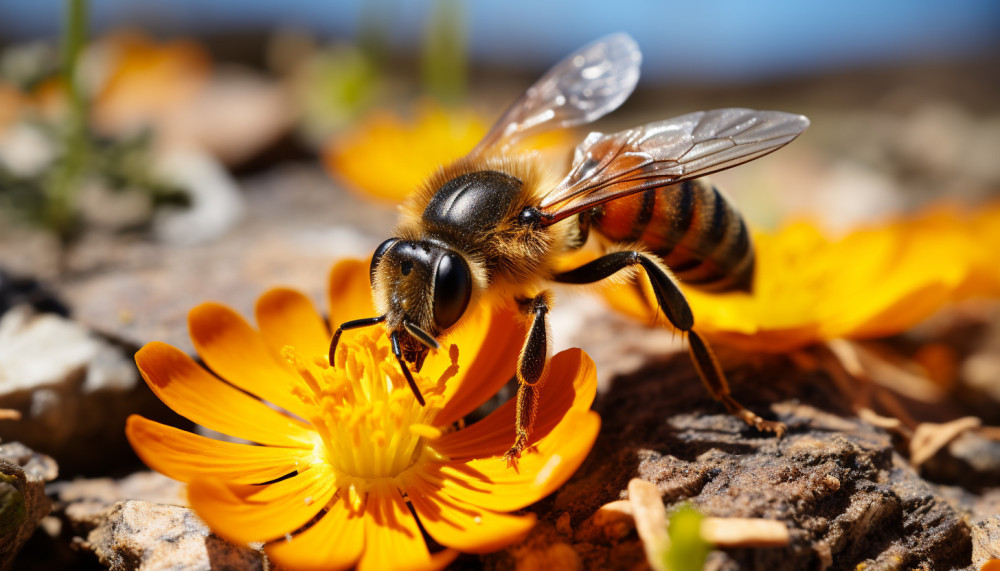Table of contents
Climate change is a prevailing issue that has been wreaking havoc upon various species across the globe. Among these are bees, an essential component of our ecological system. These industrious insects play a crucial role in pollination but their populations have been experiencing abnormal fluctuations due to changing climate conditions. The impact of climate change on bee populations might not seem evident at first glance; however, scientists and researchers have uncovered startling revelations about how subtle shifts in temperature and weather patterns can significantly affect these tiny creatures. This blog post will delve into understanding this unexpected correlation between climate change and bee population dynamics.
The Role Bees Play in Our Ecosystem
The significance of bees within our ecosystem cannot be overstated. As natural bee pollinators, they play a pivotal role in maintaining biodiversity as well as contributing to our food supply. Without the tireless work of these small creatures, many plant species would struggle to reproduce, resulting in a decrease in biodiversity. This would inevitably lead to an imbalance in the ecosystem and disrupt the food chain.
In addition to this, bees are also a key player in food production. Through the process of pollination, they assist in the fertilization of plants, an indispensable task for the creation of fruits, vegetables, and nuts. The impact of their work extends beyond what's immediately visible, as they also support the growth of plants that create habitats for other wildlife, reinforcing the ecosystem balance.
It is, therefore, evident that the importance of bees is multifaceted. They are more than just producers of honey – they are an integral part of our ecosystem and their absence would have profound implications. The importance of bees is a topic that requires more attention, and understanding their role can help in the efforts to protect these pollinators and our environment.
Understanding Climate Change Impacts
The notion of climate change thoroughly encapsulates several manifestations such as global warming effects, the impact of greenhouse gases, the consequences of rising temperatures, as well as the occurrence of extreme weather events. At its core, climate change refers to the drastic alterations in global or regional climate patterns, primarily a change apparent from the mid to late 20th century onwards, and attributed substantially to the increased levels of atmospheric carbon dioxide produced by the use of fossil fuels. The implications of these shifts are far-reaching, affecting ecosystems, biodiversity, and even human health. Beyond these generalized outcomes, it is necessary to acknowledge the targeted consequence of climate change on specific species, such as bees, which have experienced significant population changes due to these environmental shifts.
The Interplay Between Climate Change And Bee Populations
Unpredictable weather patterns and increasing global temperatures, brought about by climate change, significantly impact the living conditions of bees. The changes in their environment compel bees to adjust their normal behavior, especially in regards to their feeding habits and reproductive cycles. When these essential behaviors are disrupted, it can lead to a decline in overall bee populations.
The aspect of changing living conditions for bees is not to be underestimated. Rising temperatures can cause premature blooming of flowers, leading to a mismatch in the timing of food availability for bees. This alteration in their feeding schedule can result in malnutrition, affecting their health and survival rates.
In addition to changing feeding habits, climate change also disrupts the reproductive cycles of bees. Bees rely on specific temperature cues for mating and laying eggs. When these cues are affected by climate change, it can lead to a decrease in successful reproduction and ultimately, declining bee numbers.
It is clear to see that the environmental changes brought about by climate change are having unintended consequences on our bee populations. By understanding these impacts, we can look towards creating strategies to protect bees and ensure their survival in a changing world.
On the same subject

A Deep Dive into Whale Communication Patterns

Feral Cats: Unseen Heroes of Rat Control?

Extraordinary Abilities of the Octopus Brain

